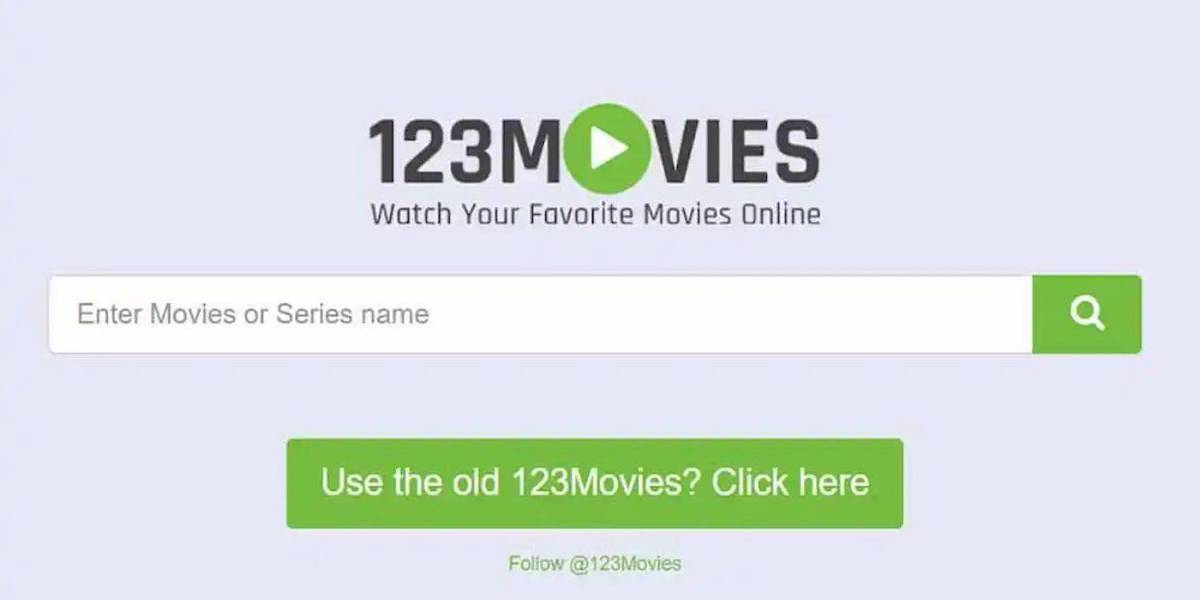Quibi, I Hardly Knew You: 10 Defunct Streaming Services & Why They Failed, Explained
There are a lot of failed streaming services, and while Quibi may be the most notorious of these platforms, there are many more that have crashed and burned over the years, sometimes within only a few months. Streaming services have been in the news lately, and it's not in a laudatory fashion. Streaming is getting more expensive, and a lot of services that began with free trials are starting to give them up. Filmmakers are also making a bid to get audiences back to theaters with multiple appeals to viewers at the 2025 Oscar ceremony.
It's much too early to say that powerhouse streaming services like Netflix, Hulu, and Paramount+ are doomed, particularly considering the deep coffers of other streaming platforms like Apple and Amazon. However, streaming services fail much more often than they succeed, and there is a large graveyard of streamers that just couldn't make it. Now, many were boxed out by the giants we have come to accept as everlasting, but if services like Quibi, Popcornflix, and more can tell us anything, it's that no matter how long a streamer is around, it's always in danger of cratering.
10 123Movies (2015–Mar. 2018)
Voluntarily Shut Down By Owners After Legal Threats
Anyone who sailed the seas as a movie pirate in the 2010s will recognize 123Movies, though they may only know it from its other names, like GoMovies, GoStream, MeMovies, or 123moviehub. This free video streaming site was at one point labeled "the most popular illegal site in the world" by the MPAA (via TorrentFreak). Launched out of Vietnam at an undetermined time in either 2015 or 2016, 123Movies allowed users to watch virtually any movie for free.
These free streams were notable for being HD and Blu-ray quality, unlike a lot of illegal streaming sites from the era. Of course, from its inception, the site faced lawsuits and attempts to shut it down. The site, at one point, had nearly 98 million visitors a month, but eventually, it shut down in March 2018, under threat from a concerted effort by multiple countries (via News).
9 Akimbo (Oct. 2004–June 2008)
Went Out Of Business
Akimbo was a video-on-demand service that launched in October 2004 and allowed subscribers to download TV shows and movies to a set-top box on demand. It offered content that was on the more eccentric side, with pornography and foreign language channels making up a significant proportion of its library. There were several other problems with the service, including the box itself, which cost nearly $300. Worse, the prices of the purchased content were never standardized.
A set-top box is also known as a cable box and traditionally contains a TV tuner, which older television sets required.
Akimbo purchased the right to provide content from providers but then allowed the providers to set the cost for consumers, which resulted in huge price jumps for shows and movies alike, with no rhyme or reason for why something would cost more than something else. In June 2008, Akimbo shuttered its doors and officially went out of business (via AnimeNewsNetwork).
8 DC Universe (Sept. 2018–Jan. 2021)
Content Folded Into HBO Max
Before the DCEU came about, there was the DC Universe, a subscription-based video-on-demand service operated by DC Entertainment and Warner Bros. Digital Networks. The service offered a library of animated series and movies based on DC Comics and even had digital DC Comics available. The service was only ever available in the United States, but was very popular there, winning a Webby for Media Streaming in the category Web (via TheVerge).
Some popular original series came out of the DC Universe, including Doom Patrol, Harley Quinn, and Young Justice. In May 2020, WarnerMedia launched HBO Max and slowly began pushing DC Universe users to the new platform with deals. It finally dissolved in January 2021 and changed to a comic-centric platform, with its titles going to HBO Max, which became the sole streamer for Warner Bros. Discovery content (via THR).
7 FilmStruck (Nov. 2016–Nov. 2018)
WarnerMedia Restructured And FilmStruck Shut Down
FilmStruck was a streaming service for the Turner Classic Movies channel, with an eye towards classic, rare, arthouse, and independent cinema. It launched in 2016 and became the exclusive online streaming home of The Criterion Collection, taking that honor from Hulu (via TheVerge). While the search functionality was never the best, the contents included over 1600 films, each of which were considered some of the best ever made.
The Criterion Channel eventually launched, however, and the notable films once found on FilmStruck are now available there.
FilmStruck organized its library into interestingly themed collections, which helped highlight lesser-known titles. In 2018, WarnerMedia announced plans to restructure, which ended FilmStruck (via Variety). Many notable directors decried the decision, including Steven Spielberg, Martin Scorsese, Paul Thomas Anderson, and Barry Jenkins (via Deadline). The Criterion Channel eventually launched, however, and the notable films once found on FilmStruck are now available there.
6 Funimation (Jan. 2016–Apr. 2024)
Library Merged With Crunchyroll
Funimation launched in 2016 and had a long run before shutting down in 2024. At the time of launch, it was one of the leading anime distributors in North America and had notable titles in its library, including Dragon Ball, One Piece, My Hero Academia, and Attack on Titan, among others. Funimation was quickly acquired by Sony, and the service was run through Sony Pictures Entertainment (via SonyPictures). In 2021, Sony also acquired Crunchyroll, another anime distributor (via AnimeNewsNetwork).
Funimation was soon rebranded as Crunchyroll, and a majority of its catalog was then moved to that streamer. However, Funimation remained active and cast several of the same shows available on Crunchyroll (via GamesRadar). Finally, in February 2024, it was officially announced that the Funimation app would shut down and subscribers could migrate their accounts to Crunchyroll, though with a price increase (via AnimeNewsNetwork).
5 Popcornflix (Mar. 2011–June 2024)
Parent Company Filed For Bankruptcy
Popcornflix was an over-the-top streaming service that offered ad-supported movies and webisodes owned by Chicken Soup for the Soul Entertainment, a subsidiary of the popular Chicken Soup for the Soul self-help and consumer goods company. It was available in the United States and Canada, and along with feature-length movies, the service also included "Film School Originals," inviting submissions from students (via MediaPost).
Chicken Soup for the Soul Entertainment also owned Redbox at the time of its bankruptcy filing.
In April 2024, Chicken Soup for the Soul Entertainment announced the company had a $636.6 million loss in 2023 and was grappling with a possible Chapter 11 bankruptcy protection filing (via NextTV). This eventually came to fruition in 2024, when the U.S. Bankruptcy Court converted Chicken Soup for the Soul Entertainment to Chapter 7 bankruptcy, which meant it had to liquidate all assets, including Popcornflix (via Deadline).
4 Presto (Jan. 2015–Jan. 2017)
Foxtel Bought Out 50% of Presto And Shut It Down For Foxtel Play
The Australian streaming company Presto originally only offered unlimited viewing of selected movies, but it began offering TV shows soon after its launch as well. There were three options to choose from: Presto Movies, Presto TV, and Presto Entertainment, which included the former two subscription options bundled together. Presto primarily competed with Quickflix and Netflix at the time and had some significant advantages, such as exclusive access to shows like Entourage, The Sopranos, and Boardwalk Empire (via Mumbrella).
Presto was notably more expensive than Netflix at the time, costing $14.99/month compared to Netflix's $9.99 at the time (via News). Netflix users also received TV shows and movies for that one price. In October 2016, it was announced that Foxtel was in talks to purchase 50% of Presto and cease operation of the streaming platform in 2017, which they ended up doing in favor of Foxtel Play, their own streaming service (via CNET).
3 Quibi (Apr. 2020–Dec. 2020)
Subscriber Numbers Fell Well Below Targets And The Founders Shut It Down
Quibi was a short-form streaming platform that specifically targeted a younger demographic with content delivered in digestible 10-minute episodes they referred to as "quick bites", hence the name (QUI-ck BI-tes) (via Variety). The streamer launched in April 2020 in the US, Australia, and Europe, hitting number 3 on the App Store (via TechCrunch). However, problems quickly materialized with subscriber numbers falling well below projections (via WSJ).
Quibi ended up being a $1.7 billion failure and has been used as a cautionary tale for any company that overpromises and suggests it knows more about a certain demographic than anyone else.
In October 2020, only six months after launch, it was announced Quibi would be shutting down, and it eventually did so in December 2020 (via WSJ). The Roku Channel ended up acquiring Quibi's library of 75+ shows, rebranding them as Roku Originals (via Variety). Quibi ended up being a $1.7 billion failure and has been used as a cautionary tale for any company that overpromises and suggests it knows more about a certain demographic than anyone else (via Bloomberg).
2 Seeso (Jan. 2016–Nov. 2017)
The Service Shut Down Likely Due To Competition From Other Streaming Platforms
Seeso is an over-the-top subscription streaming service that launched in 2016 and closed less than two years later. It specifically provided content with original programming and broadcast television shows, much of which came from NBCUniversal's library. Popular comedy series were available on Seeso, including Saturday Night Live, Parks and Recreation, Monty Python, and more. There was also original programming such as The UCB Show, HarmonQuest, and Shrink.
The service was only $3.99/month and was ad-free, but competition from other streamers like Disney, which had broken up with Netflix at the time, signaled that the small streamer was not going to survive with all the big fish swimming around (via Forbes). Seeso does have a spiritual successor in Peacock, which includes the NBC comedy shows that could be found on Seeso. The original programming can now be found across a variety of platforms.
1 Yahoo! Screen (June 2006–Jan. 2016)
Folded Because It Continually Lost Money For Yahoo
Yahoo! Screen originally launched as Yahoo! Video in 2006 but was later rebranded to Yahoo! Screen in 2011, at the same time placing a larger focus on original content and web series (via VentureBeat). The service had some success with original programming like Burning Love, Electric City, and Ghost Ghirls. Yahoo! Screen is also notable for being the first platform to stream an NFL game exclusively through the internet when it cast the 2015 Buffalo Bills-Jacksonville Jaguars game (via Bills).
However, the service soon ran into problems, including a $42 million write-down during a Q3 earnings call in late 2015 (via ArsTechnica). The portal was quickly shuttered, and original content was moved to various locations on the Yahoo! TV site. Hulu announced a partnership with Yahoo!, creating Yahoo! View, though that platform also became a failed streaming service when it was shut down as well, coming to an end in June 2019 (via Forbes).














